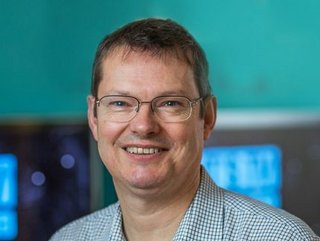‘Better broadband on moon than some of the UK is worrying’

There’s no doubt that broadband is a necessity for social and financial inclusion. Richard Brandon, VP Strategy at RtBrick, highlights how disproportionate access holds people back, further contributes to the skills gap and negatively affects a geography overall.
“Unfortunately, a significant divide still exists between cities and the countryside today, where many across the UK and globally have limited access to acceptable broadband speeds – in some cases, even slower speeds than the moon might have soon,” he explained.
“The COVID pandemic amplified the issue of broadband access when stay-at-home orders were enforced globally, and people turned to technology for entertainment and work. Just last year, research found 1.5 million UK homes are still offline as a result of inadequate internet access. Although the transition to remote work, school, and entertainment was seamless for most individuals, there were numerous obstacles and difficulties encountered by a significant number of people in terms of accessing broadband.”
Brandon further highlights how with the increasing cost of living, there has been a knock-on effect on telco prices. It has been found that the UK ranks 76th in a global listing of the cheapest regions for broadband. He added: “In an age where livelihoods and education are dependent on broadband, it is crucial that it is affordable and accessible, otherwise disproportionate access will increase inequality and contribute to the skills gap. After all, in this day and age where most every day processes are conducted online, broadband should be a right and not a privilege.”
Here, he poses the question: How can telcos help to shrink the divide and provide decent connectivity to all areas at an affordable rate?
Not just a rural issue
Recognising that inadequate broadband access is a problem faced by both urban and rural communities is crucial. Moreover, it's essential to acknowledge that each group faces unique challenges. The major obstacle to bringing broadband connectivity to rural areas is the access infrastructure, as extending fibre-optic cables throughout the whole country is necessary to reach rural regions.
Although many telecoms companies have already installed fibre and cable underground in most cities, not all households in urban areas have access to fast broadband either. By 2024, the internet will be available on the moon, and it will be faster than half of UK household speeds. Reports found 70% of Welsh households and 56% of Scottish households are currently unable to access the 100Mbps speed which will be available on the moon.
What prevents city households from accessing decent broadband? For a significant number of them, the obstacle is the expense, rather than the availability. Since the cables are mostly already in place, the solution which could best address the affordability and accessibility problem of broadband is for telecommunications companies to look at reducing the expenses associated with providing and maintaining their services. The regional average price of European broadband currently stands at US$50.87 which is above budget for many urban households, especially in the current economic climate.
Employing network disaggregation to increase the accessibility and affordability of broadband
How can telcos find ways to lower the cost of delivering and operating services to help provide decent connectivity to all areas? Or, even better, how can they find ways of delivering even higher speeds at lower costs?
Telcos should consider adopting new technologies like network disaggregation in order to bridge the broadband gap in urban areas. Disaggregation offers the flexibility to combine different hardware and software components from various vendors, resulting in significant cost savings. This method also provides cost savings in the long run. Decoupling hardware and software makes it easier to update the software without having to replace the hardware altogether. Furthermore, supplier monopolies, which used to control both software and hardware, are eliminated with disaggregation, leading to lower prices in the future.
The adoption of disaggregated networks would enhance the scalability of urban neighbourhoods. By adding inexpensive white boxes to the network and activating new software licences when necessary, providers can easily expand their network. This feature is particularly attractive for urban neighbourhoods experiencing rapid population growth.
It’s not rocket science
An individual's broadband access should not be determined by their place of residence and should not be outclassed extraterrestrially. However, the harsh reality is that rural and urban areas in the UK still face challenges in obtaining adequate broadband access. The good news is solutions like network disaggregation are readily available right now, offering telcos the opportunity to help solve the issue and provide households across the entire country with reliable and inexpensive broadband access.
******
For more insights into the world of Mobile - check out the latest edition of Mobile Magazine and be sure to follow us on LinkedIn & Twitter.
Other magazines that may be of interest - Data Centre Magazine.
Please also check out our upcoming event - Cloud and 5G LIVE on October 11 and 12 2023.
******
BizClik is a global provider of B2B digital media platforms that cover Executive Communities for CEOs, CFOs, CMOs, Sustainability leaders, Procurement & Supply Chain leaders, Technology & AI leaders, Cyber leaders, FinTech & InsurTech leaders as well as covering industries such as Manufacturing, Mining, Energy, EV, Construction, Healthcare and Food.
BizClik – based in London, Dubai, and New York – offers services such as content creation, advertising & sponsorship solutions, webinars & events






